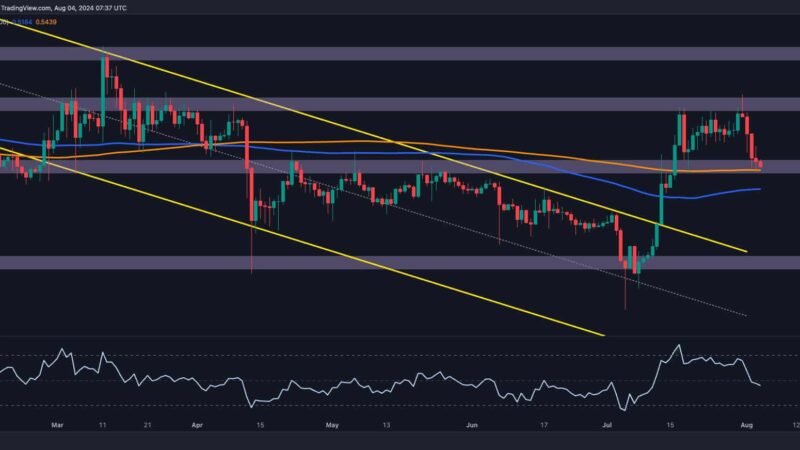6% of Bitcoin nodes running outdated software vulnerable to exploits
Bitcoin Core developers have historically disclosed just 10 vulnerabilities affecting older software versions, as reported by Bitcoin Optech. The vulnerabilities, fixed in more recent releases, could have allowed various attacks on nodes running outdated Bitcoin Core versions.
The vulnerabilities are relevant given that Bitcoin Core developers recently introduced a new security disclosure policy to improve transparency and communication regarding vulnerabilities. Historically, the project has faced criticism for inadequate public disclosure of security-critical bugs, leading to a perception that Bitcoin Core is free of bugs.
Libbitcoin developer Eric Voskuil wrote, in a message to the Bitcoin mailing list, that this perception is misleading and potentially hazardous, as it underestimates the risks of running outdated software versions.
Active Bitcoin node vulnerabilities
CryptoSlate has analyzed active Bitcoin nodes to identify how many are currently vulnerable to each attack vector. Roughly 787 (5.94%) out of 14,001 nodes run versions older than 0.21.0.
This figure is significant enough to be considered a problem the Bitcoin community may need to address. Efforts can be made to encourage these node operators to upgrade to newer versions to enhance the Bitcoin network’s overall security, efficiency, and future readiness.
While not an immediate critical issue, it is undoubtedly a concern that warrants attention. It’s not an existential threat to Bitcoin, as most of the network still runs up-to-date software. However, it represents a non-trivial portion of the network that could cause issues or be exploited under certain circumstances. It indicates a need for better communication and incentives within the Bitcoin community to encourage more frequent updates.
Risks for active Bitcoin nodes
| Vulnerability | Affected Versions | Vulnerable Nodes |
|---|---|---|
| Remote code execution due to a bug in miniupnpc (CVE-2015-6031) | Before 0.11.1 | 22 |
| Node crash DoS from multiple peers with large messages (CVE-2015-3641) | Before 0.10.1 | 5 |
| Censorship of unconfirmed transactions | Before 0.21.0 | 787 |
| Unbound ban list CPU/memory DoS (CVE-2020-14198) | Before 0.20.1 | 185 |
| Netsplit from excessive time adjustment | Before 0.21.0 | 787 |
| CPU DoS and node stalling from orphan handling | Before 0.18.0 | 70 |
| Memory DoS from large inv messages | Before 0.20.0 | 182 |
| Memory DoS using low-difficulty headers | Before 0.15.0 | 29 |
| CPU-wasting DoS due to malformed requests | Before 0.20.0 | 182 |
| Memory-related crash in attempts to parse BIP72 URIs | Before 0.20.0 | 182 |
Per the disclosure, the most widespread vulnerability affected versions prior to 0.21.0, potentially impacting 787 nodes. This flaw could enable censorship of unconfirmed transactions and cause netsplits due to excessive time adjustments.
Three separate vulnerabilities affected versions before 0.20.0, each potentially impacting 182 nodes. These included a memory DoS from large inv-messages, a CPU-wasting DoS from malformed requests, and a memory-related crash when parsing BIP72 URIs.
An unbound ban list CPU/memory DoS vulnerability (CVE-2020-14198) affected versions prior to 0.20.1, potentially putting 185 nodes at risk. Earlier versions were susceptible to other attacks, such as a CPU DoS and node stalling from orphan handling (before 0.18.0, affecting 70 nodes) and a memory DoS using low-difficulty headers (before 0.15.0, impacting 29 nodes).
The oldest vulnerabilities disclosed included a remote code execution bug in miniupnpc (CVE-2015-6031) affecting versions before 0.11.1 and a node crash DoS from large messages (CVE-2015-3641) in versions prior to 0.10.1. These affected 22 and 5 nodes, respectively, indicating that very few are still running such outdated software.
New Bitcoin developer disclosure policy
The new policy categorizes vulnerabilities into four severity levels: low, medium, high, and critical. Low-severity bugs, which are difficult to exploit or have minimal impact, will be disclosed two weeks after a fixed version is released, with a pre-announcement made simultaneously.
Medium and high-severity bugs, which have more significant impacts, will be disclosed two weeks after the last affected release reaches its end-of-life (EOL), typically one year after the fixed version is first released. A pre-announcement will be made two weeks before disclosure. Critical bugs threatening the network’s integrity will require an ad-hoc disclosure procedure.
The policy will be implemented gradually. All vulnerabilities fixed in Bitcoin Core versions 0.21.0 and earlier will be disclosed immediately. In July, vulnerabilities fixed in version 22.0 will be disclosed, followed by those fixed in version 23.0 in August. This process will continue until all EOL versions have been addressed.
This initiative aims to set clear expectations for security researchers, incentivizing them to find and responsibly disclose vulnerabilities. By making security bugs available to a broader group of contributors, the policy seeks to prevent future issues and enhance the overall security of the Bitcoin network.
Per the Bitcoin Development Mailing List, the policy’s gradual adoption will allow the community to adjust and provide feedback on its impact.
Node operators still using affected versions are strongly advised to upgrade to the latest release to mitigate these potential risks.
The post 6% of Bitcoin nodes running outdated software vulnerable to exploits appeared first on CryptoSlate.


